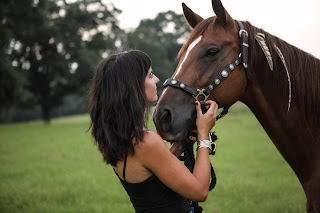i just googled heifer & found out 'prick of the spindle' editor eric weinstein reviewed my book!
shame on you, eric, for not shooting me an email & letting me know about your book review. these kinds of things are holiday gifts. im indebted to you. i thank you graciously. i think you are indeed very cool. i send you mirth & happiness all your days.
* here's eric's review from 'prick of the spindle' vol. 4.4 *
Black-Eyed Heifer
By Shelly Taylor
Reviewed by Eric Weinstein
Tarpaulin Sky Press, 2010
ISBN: 978-0982541647
perfect bound, 88 pp., $14.00
The prose poem, though often cited as an experimental poetic form, isn’t new: it’s at least as old as the nineteenth century, during which Charles Baudelaire laid the foundations for the genre. The history of idyllic poetry stretches back even further, to Theocritus’ Idylls written in the third century bce. Paradoxically, in spite and because of the rich poetic heritage inherent in these modes of expression, Shelly Taylor’s Black-Eyed Heifer succeeds as a novel, extended meditation on the earthy, the local, and the quintessentially American. In short, these poems are a charming—and slightly edgy—modern take on the traditional eclogue.
Although these are predominantly prose poems, there are some traditional forms to be found, such as the sonnet, “Raising miss g,” which begins: “Careful what comes from your belly: if a horse / she’ll not take me far. The dogs were always too close.” Animals, horses in particular, abound, and Taylor’s attention to the rustic, unmechanical existence permitted by life in the countryside opens the content of her poems to a degree paralleled by the texts themselves. Taylor’s poems flow across the page and are marked by a distinctive linguistic inventiveness, making the reader feel as though he or she has been invited into an alternate, somewhat less rigid reality: she describes “an eye so dark you can’t tell the iris from the darkness rest” in “This sonofabitch land had to be broken,” and often uses nouns in place of adjectives (“the trees have become scarecrow’d,” from the same poem) or verbs (“the dirt road uphilling nearer home,” from “Keylight”). Her idiosyncratic placement of prepositions, especially the word “of,” completes the effect.
Reminiscent of Tony Tost’s Invisible Bride, Taylor’s poems evoke the quotidian without becoming banal, carrying the reader through dreamlike forests and fields without engendering in him or her the sense that this has all been done before. Whether eclogue, pastoral, or idyll, Shelly Taylor’s poems turn her audience’s attention to a new poetics of place and carve out a marvelously hybridized space in contemporary American poetry.
Visit Tarpaulin Sky Press on the web at http://www.tarpaulinsky.com/
Eric Weinstein is the winner of the 2010 New Michigan Press/DIAGRAM chapbook contest for his collection, Vivisection. His poetry has appeared or is forthcoming in Best New Poets 2009, Black Warrior Review, Colorado Review, Indiana Review, Massachusetts Review, and Prairie Schooner. He is an MFA candidate at New York University.
© 2010 prickofthespindle.com
* here's eric's review from 'prick of the spindle' vol. 4.4 *
Black-Eyed Heifer
By Shelly Taylor
Reviewed by Eric Weinstein
Tarpaulin Sky Press, 2010
ISBN: 978-0982541647
perfect bound, 88 pp., $14.00
The prose poem, though often cited as an experimental poetic form, isn’t new: it’s at least as old as the nineteenth century, during which Charles Baudelaire laid the foundations for the genre. The history of idyllic poetry stretches back even further, to Theocritus’ Idylls written in the third century bce. Paradoxically, in spite and because of the rich poetic heritage inherent in these modes of expression, Shelly Taylor’s Black-Eyed Heifer succeeds as a novel, extended meditation on the earthy, the local, and the quintessentially American. In short, these poems are a charming—and slightly edgy—modern take on the traditional eclogue.
Although these are predominantly prose poems, there are some traditional forms to be found, such as the sonnet, “Raising miss g,” which begins: “Careful what comes from your belly: if a horse / she’ll not take me far. The dogs were always too close.” Animals, horses in particular, abound, and Taylor’s attention to the rustic, unmechanical existence permitted by life in the countryside opens the content of her poems to a degree paralleled by the texts themselves. Taylor’s poems flow across the page and are marked by a distinctive linguistic inventiveness, making the reader feel as though he or she has been invited into an alternate, somewhat less rigid reality: she describes “an eye so dark you can’t tell the iris from the darkness rest” in “This sonofabitch land had to be broken,” and often uses nouns in place of adjectives (“the trees have become scarecrow’d,” from the same poem) or verbs (“the dirt road uphilling nearer home,” from “Keylight”). Her idiosyncratic placement of prepositions, especially the word “of,” completes the effect.
Reminiscent of Tony Tost’s Invisible Bride, Taylor’s poems evoke the quotidian without becoming banal, carrying the reader through dreamlike forests and fields without engendering in him or her the sense that this has all been done before. Whether eclogue, pastoral, or idyll, Shelly Taylor’s poems turn her audience’s attention to a new poetics of place and carve out a marvelously hybridized space in contemporary American poetry.
Visit Tarpaulin Sky Press on the web at http://www.tarpaulinsky.com/
Eric Weinstein is the winner of the 2010 New Michigan Press/DIAGRAM chapbook contest for his collection, Vivisection. His poetry has appeared or is forthcoming in Best New Poets 2009, Black Warrior Review, Colorado Review, Indiana Review, Massachusetts Review, and Prairie Schooner. He is an MFA candidate at New York University.
© 2010 prickofthespindle.com
